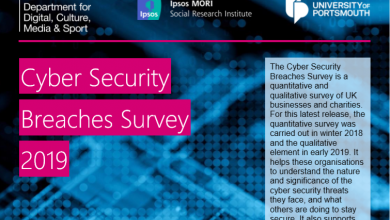
The UK Cyber Security Council – the self-regulatory body for the cyber security education and skills sector – says its Formation Project to create the Council has completed, allowing the Government-mandated body to officially become an independent entity, fully and only accountable to its Trustees.
Members include:
o (ISC)²
o BCS, The Chartered Institute for IT
o Chartered Institute of Information Security (CIISEC)
o Chartered Institute of Personnel and Development (CIPD)
o CompTIA
o CREST
o Chartered Society of Forensic Sciences (CSFS)
o Engineering Council
o Information Assurance Advisory Council (IAAC)
o The Institution of Analysts and Programmers (IAP)
o The Institution of Engineering and Technology (IET)
o Institute of Measurement and Control (InstMC)
o ISACA UK
o Security Institute (SyI)
o techUK:
o The Worshipful Company of Information Technologists
The Council aims to champion the cyber security profession across the UK, providing broad representation for the industry, accelerating awareness and promoting excellence in the profession. It will do this by delivering thought leadership, career tools and education resources to the cyber security sector and those seeking a career in the industry, alongside helping influence government, industry and academia with the aim of developing and promoting UK cyber security excellence globally and growing the skills base, it says.
Dr Claudia Natanson, chair of the Council’s Board of Trustees, said: “The Formation Project has put down solid foundations on which the Council can build, and that is what the Council is able to, and will do, from today. The next few months will be especially busy; we are now able to hire and start work on gaining traction and momentum across and beyond the profession. We’ll also be engaging with Government to ensure the delivery of the standards and governance needed to ensure a strong cyber security profession now and in the future. The trustees assure all those involved in the Council to date of our maximum efforts to take their work forward.”
The next stage is the appointment of a permanent leadership team, who will work with the Board of Trustees to establish the Council as a leader in the profession, influencing its standing and reputation within the UK and globally; and the recruitment of personnel to take forward the work of the Formation Project on elements of the Council’s remit, including recognition for cyber security practitioners, professional ethics, diversity and inclusivity in the profession and thought leadership
Dr Bill Mitchell OBE, chair of the Cyber Security Alliance, “Today marks a significant milestone for the many people who are today and will be in the future handed the enormously important task of protecting the United Kingdom and its economy from cyber threats that undermine the foundations of modern society. Handing over the Council to its trustees is the culmination of over four years of commitment to a shared vision and shared values of public benefit from 16 organisations that came together in recognition of the breadth of skills and disciplines that go into this task. Now a new profession for the UK can be officially recognised and supported. The Alliance remains fully committed to supporting the new Council and ensuring it succeeds at the pace and with the reach the UK needs as we recover from the pandemic and find our place outside the EU.”
In November 2016, the UK Government’s National Cyber Security Strategy 2016-2021 set out “the UK Government’s plan to make Britain secure and resilient in cyberspace”. It included ambitions to develop and accredit the cyber security profession by: “…reinforcing the recognised body of cyber security excellence within the industry and providing a focal point which can advise, shape and inform national policy.”

